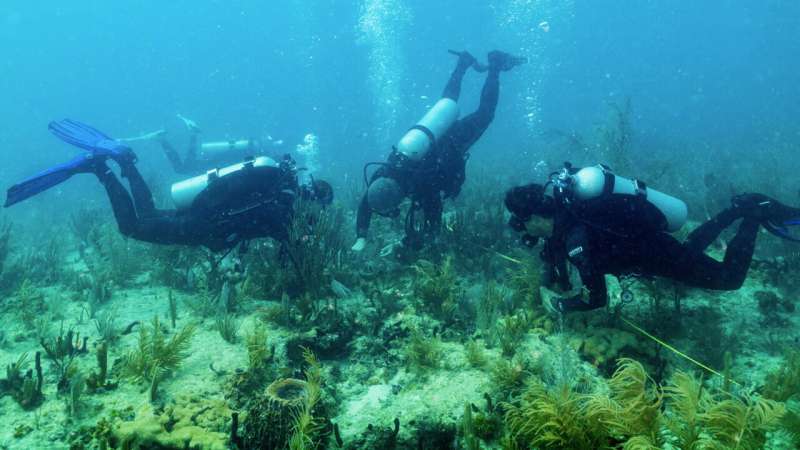In a significant advancement for coral restoration, scientists from the University of Miami‘s Rosenstiel School of Marine, Atmospheric, and Earth Science, in partnership with Tela Marine and The Florida Aquarium, have successfully outplanted hybrid elkhorn corals in Miami. These corals, referred to as “Flonduran,” are the result of breeding elkhorn parents from Florida with those from a warm reef in Honduras. This innovative approach aims to enhance the genetic diversity and resilience of elkhorn coral populations in Florida and the broader Caribbean region.
Andrew Baker, a Professor of Marine Biology and Ecology at the Rosenstiel School, emphasized the importance of elkhorn coral, stating, “It is a critically endangered species and one of the most important reef-building corals in the Caribbean.” The large, branching structure of elkhorn coral (Acropora palmata) creates essential habitats for marine life, fosters reef growth, and serves as a natural barrier against storm damage. Unfortunately, populations have plummeted by more than 99% since the 1980s due to disease, climate change, and other environmental stressors, making restoration efforts crucial.
The research team, led by Baker, collaborated with Tela Marine in June 2024 to collect genetic samples and spawning-sized fragments from resilient corals in Tela Bay, Honduras. These reefs have shown remarkable endurance against challenges such as high water temperatures and agricultural runoff—conditions that typically devastate coral ecosystems. During this expedition, they gathered hundreds of DNA samples from ten coral species to identify genetic traits that contribute to heat resilience.
Following their genetic study, the team transported 13 elkhorn coral fragments to Miami to crossbreed with local populations, aiming to improve thermal tolerance. Shortly after, seven of these Honduran colonies were moved to The Florida Aquarium’s Coral Conservation and Research Center in Apollo Beach, Florida. This facility is notable for being the first in the world to induce elkhorn coral spawning in a laboratory setting.
In July 2024, the collaborative efforts yielded successful spawning events, resulting in over 200 Flonduran coral offspring. According to Keri O’Neil, Senior Scientist and Director of the Coral Conservation Program at The Florida Aquarium, “After nearly a year of careful care, the first 35 Flonduran babies and 35 Florida elkhorn coral babies have returned to the ocean off Miami to help rebuild and strengthen future reefs.”
Baker highlighted the significance of this international collaboration, noting, “Corals don’t know international boundaries. By working together across borders, we’re helping these critical reef-builders strengthen the entire Caribbean population.” This initiative not only marks a critical pilot in coral restoration but also provides insights into how these newly outplanted corals will fare as ocean temperatures rise.
The partnership is viewed by Baker as a pivotal event in global coral conservation, demonstrating the strength of collaborative scientific and regulatory efforts. By combining genetic material from resilient coral populations in Honduras and Florida, researchers aim to restore the structural integrity and ecological functions of reefs throughout the Caribbean.
“This historic step mixes two coral populations, mirroring natural processes in the wild and is critical to the species’ survival,” noted Mike Tringali, Senior Research Scientist for the Florida Fish and Wildlife Conservation Commission. He emphasized that a coordinated genetic-rescue effort is essential for restoring Florida’s elkhorn coral, similar to the successful recovery of the Florida panther.
The National Oceanic and Atmospheric Administration (NOAA) has also expressed support for this initiative. Jennifer Koss, director of NOAA’s Coral Reef Conservation Program, stated, “NOAA was proud to support this work and partner with the University of Miami to advance technologies that strengthen Florida’s coral reef resilience.” This effort is a response to a National Academies study commissioned by NOAA on coral interventions, showcasing how quickly innovations can be put into action.
As the remaining parent colonies at The Florida Aquarium and the Rosenstiel School continue to thrive, they ensure the potential for more Flonduran offspring in subsequent spawning seasons. This ongoing effort will contribute to the long-term rebuilding and strengthening of coral reefs across the Caribbean, providing hope for the future of these vital marine ecosystems.
